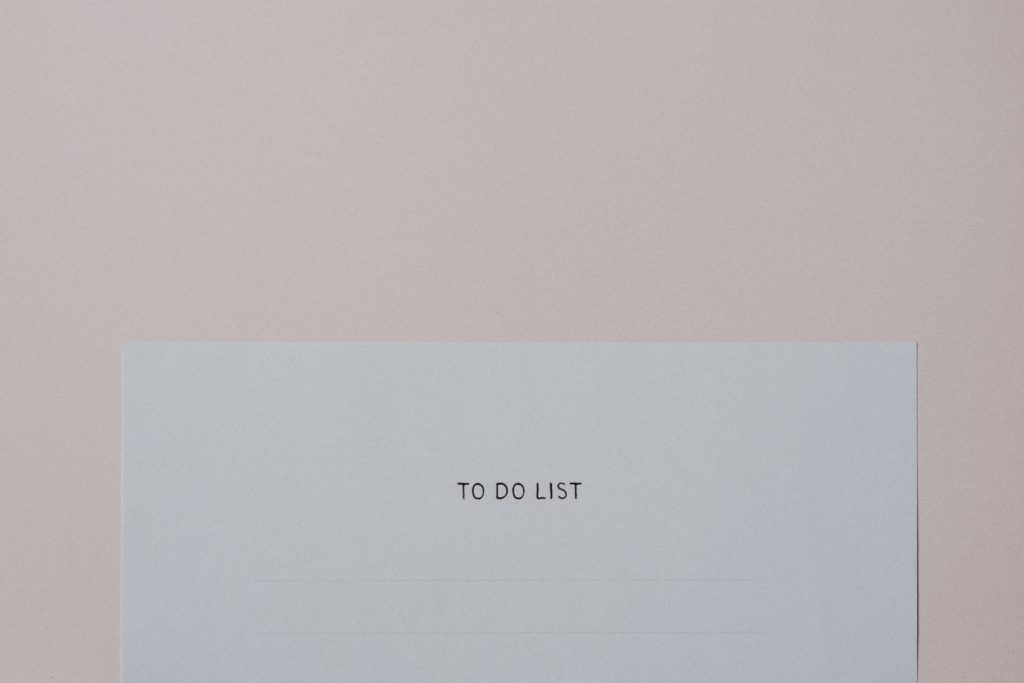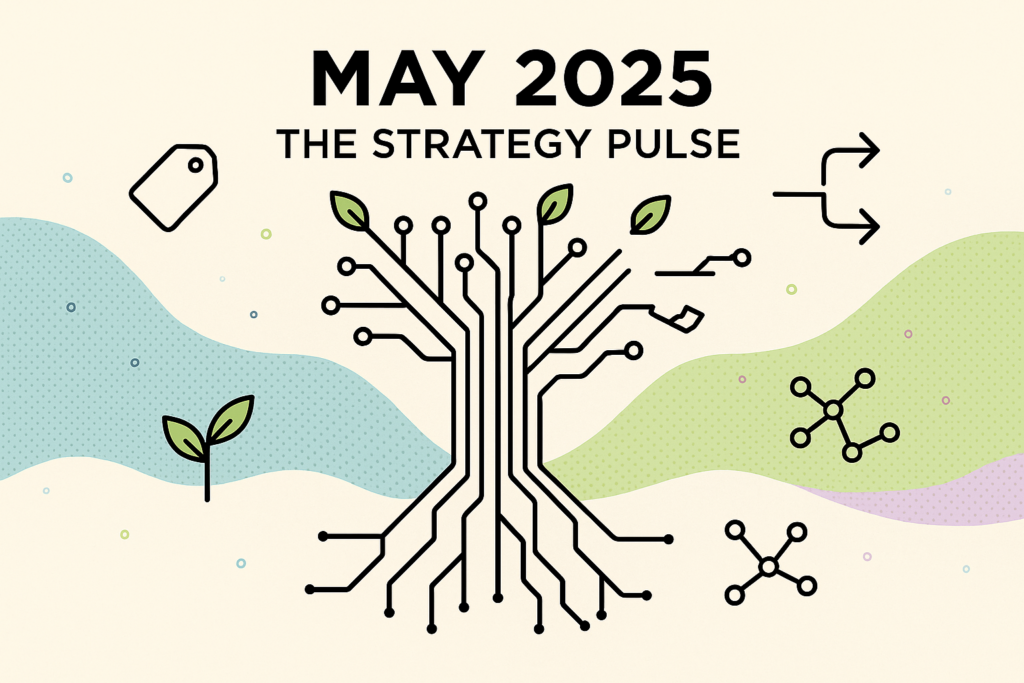Month: April 2022

Feeling snowed under? Here are four ways to deal with work-induced stress
Feeling snowed under? Here are four ways to deal with work-induced stress
April 26, 2022

The long-awaited weekend. Pure, unadulterated joy washes over you as you wake up on Friday morning, safe in the knowledge that in approximately T-12 hours, you’ll be liberated from the chains of the daily grind for 48 sweet hours. For many of us, the weekend shines forth brightly as the light at the end of the tunnel, each and every working week.
And when the weekend inevitably draws to a close, ushering in a new week of work-induced stress, you’re jolted back into reality, out of your dream-like state. It can feel like being swept up from serenely smooth waters and hit by a ferocious tidal wave. It’s a rude awakening that you can never truly feel prepared for. In the blink of an eye, the weekend is snatched away, and the cycle begins all over again.
When Monday morning rolls around, you tentatively open up your work laptop, peeping fearfully through your fingers as you glance at the screen, like a character in a horror movie. You’re hit with an influx of work emails and urgent inquiries. And just like that, you’re snapped out of your period of rest and relaxation, and the cogs of the daily grind creakily begin to turn again.
But it shouldn’t have to be like this. You shouldn’t have to go to bed every Sunday night with butterflies in your tummy, or wake up on a Monday dreading the week stretched out in front of you. You shouldn’t be so stressed out by work that you’re trapped in a cycle of counting down the days until the weekend can offer you some respite.
Don’t get me wrong – stress is a natural response to workplace pressure, and can actually be a force for good. It can light a fire under you and fuel you to work hard. But it’s crucial to manage stress so that it doesn’t get out of hand; when you’re excessively stressed out, this can lead to burnout and cause your productivity and motivation to dramatically plummet. And it can have a serious impact on your mental and physical health.
Incorporate stress management techniques into your daily routine to ensure that you don’t suffocate under the weight of uncurbed stress. As Stress Awareness Month draws to a close, what better time to explore some methods of coping with work-related stress?
Make time for yourself
Making time for yourself during the working week can seem like a Herculean task – unrealistic and unachievable. You may feel as though there simply aren’t enough hours in the day, unless you were to wake up promptly at the crack of dawn, light some incense, perform an early morning yoga sequence, prepare a green juice and meditate all before your 8:30am meeting.

In reality, however, making time for yourself doesn’t have to look like this. Simply carve out a period of time each day, whether that be ten minutes or two hours, dedicated entirely to something you enjoy doing. Block out a set amount of time to do something for yourself, for no other purpose than pure enjoyment: read that book that your friends have been recommending for as long as you can remember, go for an evening stroll, follow that recipe you’ve been keen to try, fit in ten minutes of exercise.
Whatever your self-care rituals may look like, make sure that they work for you. Wellness is not one-size-fits-all. You don’t have to sign up for expensive Pilates classes or put yourself through gruelling, Augean F45 or 1Rebel circuits in order to incorporate fitness into your weekly routine. A quick search on YouTube will unveil millions of ten-minute workouts that you can comfortably fit in around your schedule, no matter how hectic it may be.
Cultivate daily habits that you can look forward to throughout your day. It can be something small, like the ritual of making your morning coffee, or doing a five-minute stretch in the evening to unwind after sitting rigidly at your desk all day. ‘Me time’ is a tried-and-tested stress management tool.
Plan ahead
There’s no worse feeling than hazily falling out of bed in the morning, plonking yourself at your desk at 8am and realising that you have a growing mountain of work in front of you and absolutely no idea where to start.
Having to face off against this imposing tower of work can easily make you feel overwhelmed and overburdened. In order to tackle this feeling, use the start of your morning to plan ahead, scheduling and mapping out your day, allocating the necessary time and energy to each task.
This is a small but mighty stress management technique. Simple as it may seem, it’s a sure-fire way to limit excessive work-related stress. When your brain feels like a jumbled-up jigsaw puzzle – thousands of tiny, fragmented pieces in a mixed-up mess – you can put all the pieces of the puzzle together by creating a clear and organised schedule at the beginning of each work day. By compartmentalising your day, designating a specified amount of time to your different tasks and responsibilities, you’re breaking down your work into bitesize chunks. You can lay things out, approaching each task in turn, as opposed to drowning under a mass of work.

There’s something undeniably therapeutic about the act of ticking tasks off your daily planner. It’s a concrete way of signalling to your brain that you’re being productive, and getting things done in an organised and measured way.
Shut off and take a breather
Setting boundaries is important.
You may be keen to impress a new boss, or take on some extra work to help a co-worker out. But working non-stop into the early hours of the morning is never the answer. Overexerting yourself is a guaranteed way to end up burnt-out and stressed out. If you’re using your phone at maximum brightness, flicking between 20 different apps at a time, non-stop, without charging it, it’s inevitably going to run out pretty quickly. Sometimes, you need to operate in battery-saver mode, or give yourself an opportunity to recharge.
Recognise when it’s time to walk away from your work, to shut off and take a well-deserved breather. There’s no shame in closing your laptop screen down if you feel like you need a break. Obviously, within reason: don’t skive off of work at the first opportunity. But if you’re working hard and in need of some respite, take the time to go for a walk and reset. This can actually be highly beneficial for the quality of your work; when you come back to the task at hand, refreshed and revitalised, you can look at your work through a fresh pair of eyes. It can give you some perspective, ensuring that you don’t get bogged down in a bottomless pit of work.
And let’s not forget the ultimate key to coping with stress: getting a good night’s sleep. Never underestimate the power of a solid night of sleep; sleeping well is required to ensure that you function at full capacity during the work day, and a proper night’s sleep can alleviate stress.

All-nighters were the bane of my university life. The feeling is etched into my brain – leaving an essay to the last minute, powering through it at 4am, fuelled by nothing but Red Bulls and the fast-approaching deadline. The bags forming under my eyes would grow more visible as the sun gradually rose, and my hands, shaking with the adrenaline of the Red Bull coursing through my veins, would go to click send, beads of sweat dripping down my face. I’ve made a vow to myself to keep all-nighters firmly in the past, and it shouldn’t be something you feel the need to resort to in your working life either.
Steer clear of unhealthy coping mechanisms
When it comes to dealing with stress, there definitely is a right and a wrong way to go about it. And when you let stress bubble away on a high heat for an extended period of time, it eventually spills over into unhealthy territory.
When you don’t have healthy coping mechanisms in place, you risk falling into unhealthy habits as a means of dealing with stress. Whether it be drinking too much alcohol, smoking, developing unhealthy eating habits or avoiding responsibilities.
These coping mechanisms may seem harmless, or like a form of escapism in the short-term, but long-term they can be deeply detrimental to your health. Weed out the cause of stress at its root, rather than addressing the symptoms in a dangerous way.

It’s not you, it’s me: the worrying trend of professional ghosting
It’s not you, it’s me: the worrying trend of professional ghosting
April 12, 2022

Your phone buzzes. You instantly scramble to seize hold of it, and anxiously peer at the lit-up screen.
False alarm. Dejected, you fling your phone across the room and stare blankly at the ceiling.
Expecting a message from your current romantic interest, you’re instead greeted by a notification from the news app informing you of some breaking news, or your FitBit tauntingly reminding you that you’ve walked just 59 steps today out of your 10,000 daily target.
The message you spent ages composing – as you mulled over whether to put an ‘x’ at the end of the sentence, or whether to express your amusement with a ‘lol’ or a ‘haha’ – has garnered no response whatsoever. The two ticks, indicating that your message has been delivered, stand out mockingly on the screen. As you go to check their ‘last seen’ on Whatsapp, you realise that they were online two minutes ago. You sent that text two hours ago.
All the signs seem to point directly towards a singular conclusion: you’re being ghosted.
For anyone lucky enough to be unfamiliar with the term, ghosting is a modern phenomenon that plagues the world of online dating. Ghosting basically entails cutting off contact with someone out of the blue, with no apparent reason or forewarning. In the modern dating world, relationships tend to follow a pretty similar trajectory: your date may ghost you, before submarining into your life again by sliding into your DMs just in time for cuffing season, love bombing you into a situationship.
Confused? Us too. Navigating the world of online dating is a minefield, and attempting to decipher all the jargon of modern romance is like trying to crack the Da Vinci code.
Ghosting is a phenomenon that many of us have experienced in some capacity. According to research by Elle magazine, 50% of men and women alike have either ghosted someone or been the victim of ghosting themselves. The guilty party always uses ghosting as a way of avoiding the awkward ‘it’s not you, it’s me’ conversation.
And it always follows the same blueprint. You spend time carefully curating a Tinder or Hinge profile, tentatively match with someone, experience the ecstasy of a whirlwind romance, only then to come crashing down from your high when you’re suddenly met with radio silence.
For those of you who have thus far managed to steer clear of the world of online dating: if you think you’ve escaped the ghosting phenomenon, think again. Ghosting is beginning to permeate every facet of modern life, and no one is safe.
Ghosting from the applicant perspective
Searching for employment in the current job market is hard enough as it is. Every company out there expects nothing short of perfection from you. Employers all seem to demand that you tailor your CV and cover letter entirely around why you would like to work specifically at their company. They basically expect you to write a romantic ballad dedicated to them, expressing your passion for the company, and describing how it’s been your ambition to work there since childhood, from the moment you learnt to talk.
So then, when they don’t even provide you with the bare minimum of an automated response, it’s easy to see how the job search can become a gruelling and demotivating experience from the applicant perspective. Unfortunately, a growing number of employers simply ghost applicants who apply for roles with them.

Upon graduating six months ago, I went on a tireless hunt for a job. I became pretty much immune to the automated response system telling me that my application had been unsuccessful; it became part and parcel of the job search. In one particular instance, I applied for a role, finely tuning my CV and cover letter, only to be told within 30 seconds of submitting my application that, ‘after careful consideration’, I had been rejected. Yep, you heard that right. 30 seconds.
Believe it or not, this was actually one of the more positive experiences I had whilst searching for an entry-level graduate job. At least this particular company wasn’t afraid to let me know the ugly truth, even if it was just an automated response robot who was breaking the news to me.
Fact is, like many graduates, I’ve been ignored by more companies than I can count. No automated response, no nothing.
And it’s not just in the early stages that applicants get ghosted. You could be on the verge of receiving an offer, only to be left in the lurch by your recruiter or the hiring manager of the company at the very last minute. According to a survey by the #EndGhosting campaign, 65% of the British public have been ghosted suddenly in the middle of the hiring process.
When you’ve invested so much time and energy into something only to come back empty-handed, it’s easy to feel like your efforts are futile. But it’s important not to let it wear you down – Tinder is full of players and time wasters, but it’s inevitable that you’ll one day come across a diamond in this sea of coal. And in just the same way, if you keep pushing on, you’re sure to find a job that’s a perfect fit for you. If you do get ghosted by prospective employers, keep your head up, and remember that, as is the case with that Tinder match, it’s them and not you.
Ghosting from the hiring manager / recruiter perspective
Ghosting can be just as frustrating when the tables are turned, and the applicant is the guilty party.
If you’re a recruiter, you no doubt know what it’s like to have put a great deal of time and energy into guiding a candidate through the hiring process, only then to ultimately never hear back from them. You confidently present them with a great offer they surely cannot refuse – the light at the end of the tunnel – and then…nothing. Absolutely zilch. You feel like a priest stood at the altar, by the groom’s side, waiting excitedly to officiate a marriage. You’ve learnt the speech off by heart, and the aisles are packed with guests, only for you to find out that the bride has jilted her beloved at the very last minute. Your matchmaking efforts have fallen short, the celebrations are called off, and all you’re left with is the awkward aftermath of this failed union.
When a candidate ghosts their recruiter or the hiring manager of a company, it can be frustrating for all parties who have invested a lot of time and energy in the hiring process.

That’s not to say that candidates are obligated to respond to every recruiter who slides into their DMs with a job offer that doesn’t tickle their fancy. You cannot be expected to respond to every LinkedIn message, just like you’re not expected to respond to the influx of spammy or inappropriate messages that tend to flood the Tinder inbox.
However, when you’ve built a relationship with a recruiter or hiring manager over an extended period of time, it’s common courtesy to let them know where you stand, even if you lose interest in the role over time.
Ignoring recruiters and hiring managers in the middle of the hiring process, leaving them high and dry, risks damaging your professional reputation. In the long-term, you could potentially be burning bridges, which you may come to regret in the future. It’s always a good idea to maintain contact with the people supporting you on your job search, even if it is to let them down. Your future self may thank you for it, as they’ll be more open to working with you again should you so wish.
Ghosting may seem like the easy way out in the short-term; a way to avoid an awkward conversation. But it’s not as harmless as you may think: it can damage your professional reputation in the long-run.
The fact is, letting someone down gently is far more respectful and painless than ghosting. It provides both parties involved with some much-needed closure. The same rules apply in the dating and professional spheres: imagine the person on the other end of the screen, and treat them how you want to be treated. It would no doubt solve a lot of problems and prevent a lot of heartache if we all communicated a little more honestly with each other.

